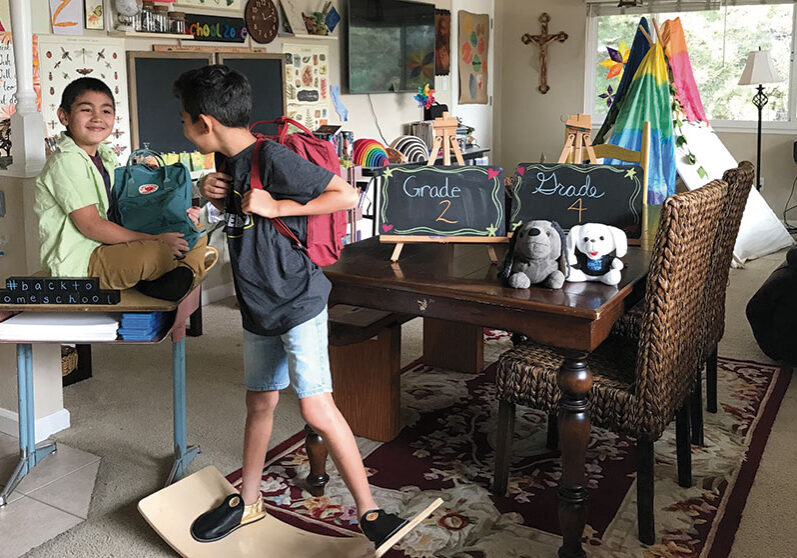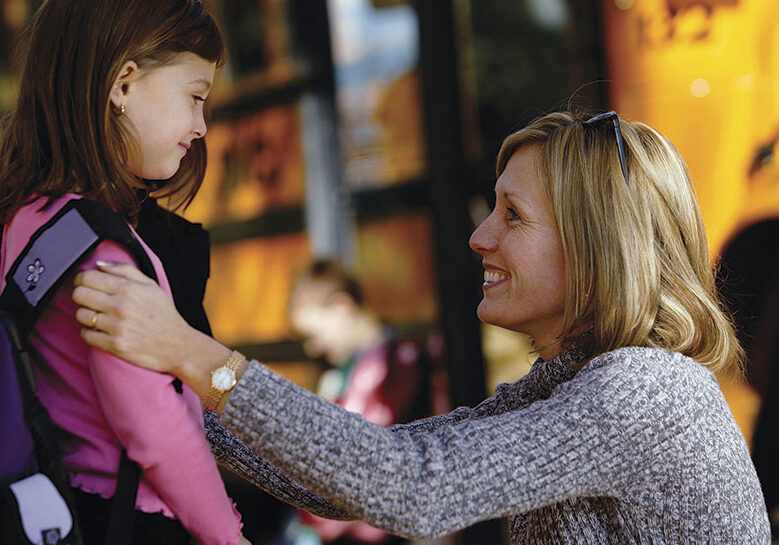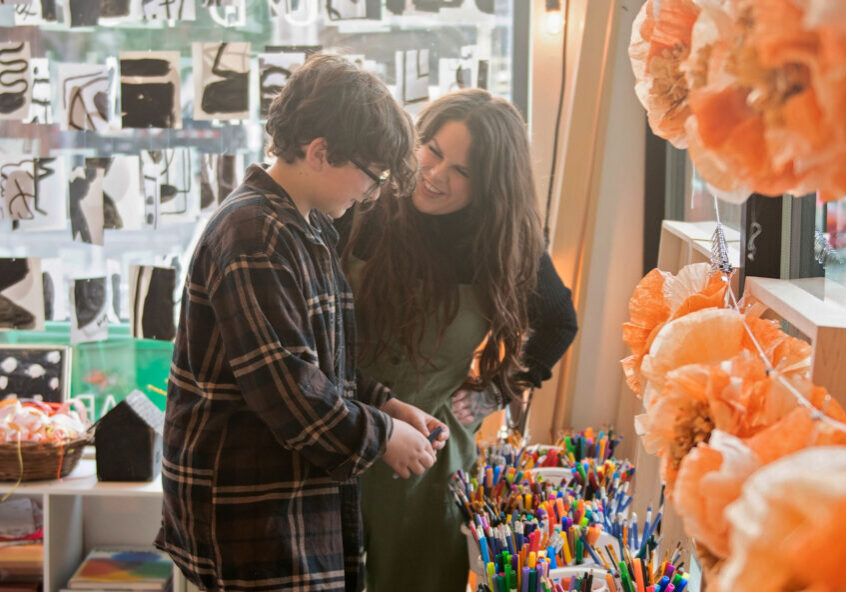 I remember lying awake for hours the night before the first day of school each fall. So many questions were swirling around my brain. What did the year have in store for me? Would my teacher be nice? Would I make friends? Would I be bullied? Was my outfit okay? Could I handle the work? My anxiety was even higher in years when I was starting a brand new school!
I remember lying awake for hours the night before the first day of school each fall. So many questions were swirling around my brain. What did the year have in store for me? Would my teacher be nice? Would I make friends? Would I be bullied? Was my outfit okay? Could I handle the work? My anxiety was even higher in years when I was starting a brand new school!
Transitioning to a new school is often very scary and can be difficult for children. Whether the change is because of a move or getting promoted to the next educational stage, they are leaving behind familiar faces and routines. While children might be excited to start a new adventure, they are likely sad to close the chapter on their old school and anxious about what is waiting for them.
I worked in early childhood education for many years and helped hundreds of children (and their nervous parents) get ready to transition to kindergarten. I’m working on a different sort of transition now … my daughter is heading to middle school!
Here are some tips to help your child get ready for a new school, at any age:
Allow your child to say goodbye to his old school.
This is a loss to your child and closure is needed. Take photos of the school, favorite objects or locations within the school, and their teachers and other valued staff members. Help your child put together a scrapbook or photo album with the pictures and other mementos, such as your child’s preschool or elementary school graduation “diploma.”
Help your child gather contact information for her friends, so they can stay in touch.
Arrange a way for friends to maintain contact through phone calls, texts, emails or Skype. If your child is moving to a new school within your same area, set up play dates over the summer and the first weeks of the new school year. Knowing that friends from their old school are still out there helps children feel less lonely as they make new friends.
Talk about your child’s new school often.
Tell your child stories about your own school experiences. Make it a normal and natural part of your conversation. Visit the new school’s website together and read about the staff, activities offered, lunch menus and basics facts, such as arrival time and dress code.
Acknowledge that changing schools is hard.
Tell your child how excited you are about the new school and that you think they’re going to have a great year, but don’t gloss over the difficulty of the situation. Your child may feel sad, angry, nervous and afraid. Let your child know that it’s okay to feel that way.
Let your child know what to expect.
If your child is entering a next-level school, talk about what happens, whether it’s kindergarten, middle school or high school. Head to the local bookstore or library for books featuring characters in a similar life phase. Read them together and talk about what the characters are experiencing.
Connect with other students from the new school.
Track down families who attend the school already and chat with them about their experiences. Arrange for your child to meet other kids who attend the new school, so your child has some friendships in the works before starting at the school.
Make the school familiar.
Drive by the school often with your child. Point it out, saying, “There’s your new school!” each time you pass by. Arrange for you and your child to visit the school, meet the principal and take a tour before your child’s first day.
Learn about the bus system.
If your child will be taking the bus, help him or her become familiar with the bus stops, route and rules before the first day. Try to find another child in your neighborhood who will also be taking the bus so your child will have a “buddy” during the first week.
[sws_blue_box box_size=”593″]
Tips for the first day
- Help your child get needed supplies organized and ready to go the night before. Lay out clothing, and prepare a checklist of what your child needs to do and bring in the morning. Go over this list together before your child walks out the door.
- If you drive your child to school on the first day, arrive early. My daughter is much less anxious if she arrives to a new location before the crowd. Watching people trickle in slowly is much less overwhelming than being thrown directly into the crowd.
- Try to keep your own emotions under control. If your child sees you crying or worried, he or she will feel even more anxious. Keep the goodbye short, upbeat and encouraging.
- Have a special treat (cookies, anyone?) and a big hug waiting when you reunite. Give your child time to decompress and process his or her day before grilling for details. Your child may need several weeks to feel comfortable in the new school. Continue talking about the change and reassure your child that it will get easier. Keep the hugs and high fives coming as your child adjusts, and treat yourself to a cookie, too. Transitioning to a new school is hard, but your child will survive – and so will you![/sws_blue_box]
Posted in: Education
Comment Policy: All viewpoints are welcome, but comments should remain relevant. Personal attacks, profanity, and aggressive behavior are not allowed. No spam, advertising, or promoting of products/services. Please, only use your real name and limit the amount of links submitted in your comment.
You Might Also Like...

California Is a Homeschool-Friendly State
California is a Great Place to Homeschool I recently met a new family after they relocated from Washington to California. The parents admitted feeling a bit anxious about homeschooling their […]

Understanding Dyslexia
Sitting with a small group of second graders, listening as each took a turn reading aloud, it struck me how reading came so easily for some and with such difficulty […]

Dia Del Campesino – Day of the Farmer
Every year for the past 35 years, (with a brief break during the COVID shutdown), The Hispanic Resource Council of Northern California (HRCNC) has presented the colorful Dia Del Campesino […]

Four Myths about Trade Schools
“Our American culture wants each generation to be better than the last,” says Tracy Lokstadt, president of The Trade School at Shasta Builders Exchange, a non-profit trade school in Redding, […]



